If you missed the New England Chapter DHI meeting last week…a Q&A presentation on codes, the question/answer document and the handout are now available on the chapter website.
You can download them here: Q&A Document / Handout
You also missed out on some great examples of why fire doors and egress doors should be inspected annually!
You need to login or register to bookmark/favorite this content.


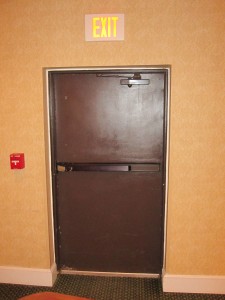
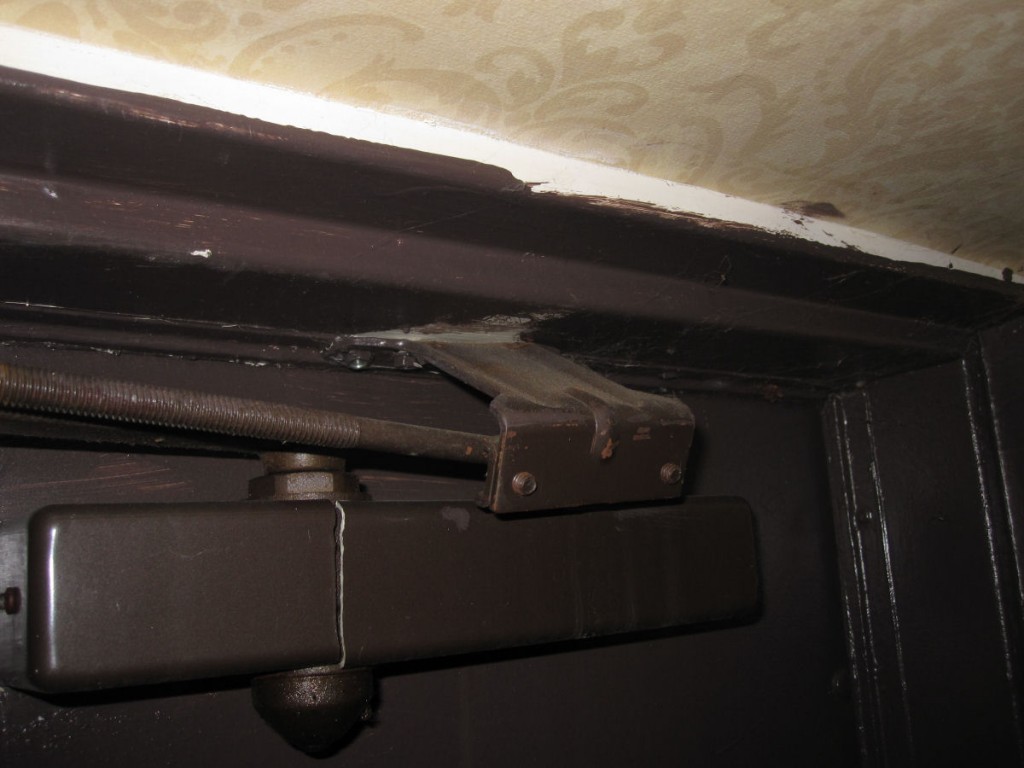
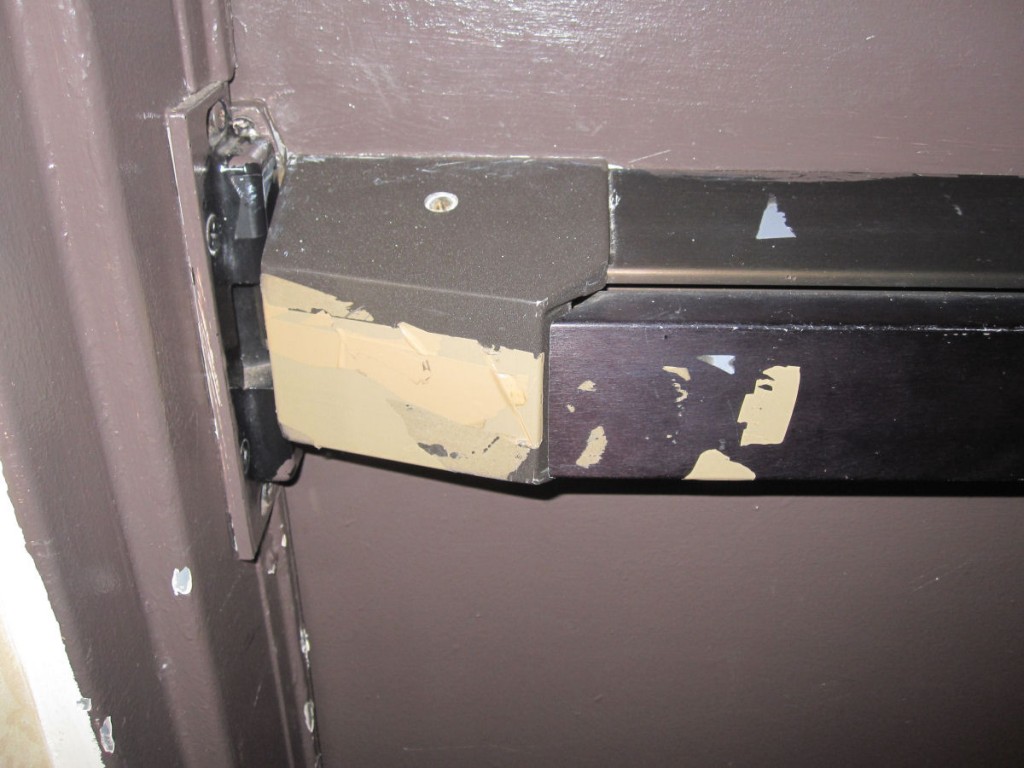
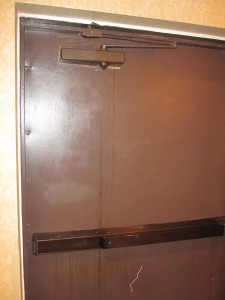
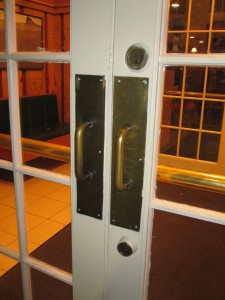
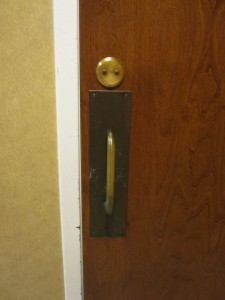
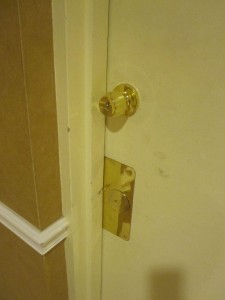
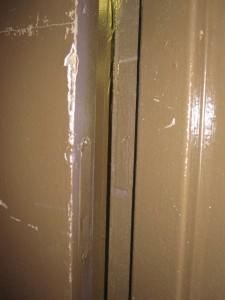
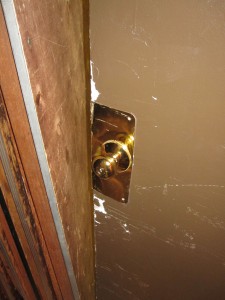
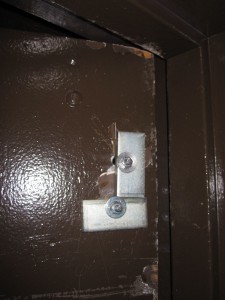
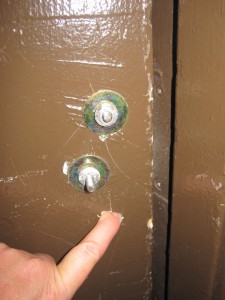
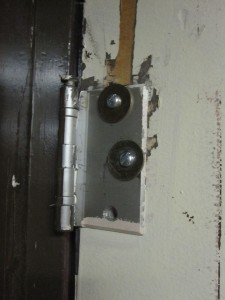
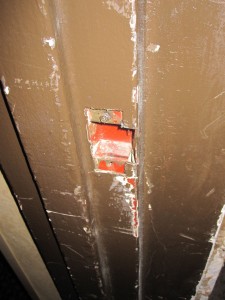
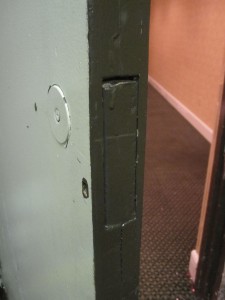
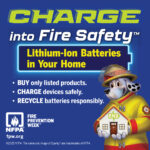
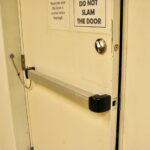
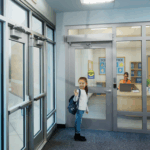

Bill
Q: I see that one of my competitors is selling wire glass in some fire rated
doors for a school addition. I thought a recent code change no longer
allowed wire glass to be used in schools. Is this true?
A: Standard wire glass is no longer allowed. Wire glass was always an
exception because products that passed the fire test and the impact test
just did not exist. That has changed and there are now ceramic glass
products (Firelite, Keralite, etc) that pass both criteria.
Wire glass and glass in general are also an exception to the temperature
rise requirement of some doors. This is why doors requiring temperature
rise ratings are restricted to 100 sq in of glass. This exception is allowed
because the danger of radiant heat is not as great as the need to be able to
see if the room you are entering is on fire.
There are some new multi‐pane intumescent sealed insulating glass
products that pass temperature rise ratings, so in the future we may see
the exception for single pane glass rescinded as well.
Lori, Keep in mind that the current IBC requirement for glass in fire doors is that not only does the glass have to be fire rated, it also has to be safety rated. So, for clarification, safety filmed versions of wire glass, such as SAFE-Wire, (referred to in your handout, using our promotional literature)does carry both fire and saftey ratings. You refer to ceramics being both fire and safety rated, but did not mention that it is also acheived using safety film, as ceramic on its own will not pass safety testing either. I found the handout to be a bit misleading as to wire glass, since there are now two very distinct versions. One that carries 16 CFR 1201 Cat II ratings (SAFE-Wire) and one that is fire-rated only (traditional wire glass). Love your website.
Ron Hansen- National Sales Manager- Anemostat Door Products
Hi Ron –
The meeting was a panel discussion, so I wasn’t responsible for all of the answers. There was additional discussion during the meeting about each of the questions…the Q&A handout was just our initial response and the answers were further developed in person. I will ask Bill to revise the answer to this question a bit. I have addressed the use of impact-resistant wire glass on this site before (http://idighardware.com/2010/04/glass-and-glasses/) as well as a post on the impact requirements (http://idighardware.com/2009/03/glass-in-fire-rated-doors/) and a totally mind-numbing post about a specific application (http://idighardware.com/2009/09/glass-challenge/), so hopefully those posts make the glass requirements clear. If you have any suggestions for changes to the blog posts, please let me know.
– Lori
P.S. I’m so glad you love the site!!
Lori and Ron,
I agree, and should have referenced safety filmed wire glass products as well as ceramic glass.
I will revise the answer to include these products.
Thanks for the feedback!
Bill
hello yet another door closer/fire door post i didnt respond to (until now)
as for the brown door and closer with bent PA bracket and broken cover, I used to see lots of these (not Ingersoll rand products!) being used in the technical school I went to, adjusting one was a slight pain in the backside, to find the correct valve then to have it not do anything unless you give it one full turn in one direction or other (one I worked on was not leaking)
leaker: ewwww, what a mess that appears to be! (perfect Halloween bloody gore look to it though, but I’m sure this place is NOT celebrating nor decorating for the holiday!) the good side pushbar is now really well lubricated for longer lifespan (thanks to the leaking closer) downside of this, door slams and people who touch that pushbar get greasy/oily hands from the leaker above and could slip and fall in the oil puddle on floor (if they haven’t already have fallen or they just keep cleaning up after the leaker all the time)
(possible you can suggest to the building owner they start to use LCN’s products???
appears with fire door inspectors, their job has no 2 days that are the same, hope they get this fixed soon!
-Jess